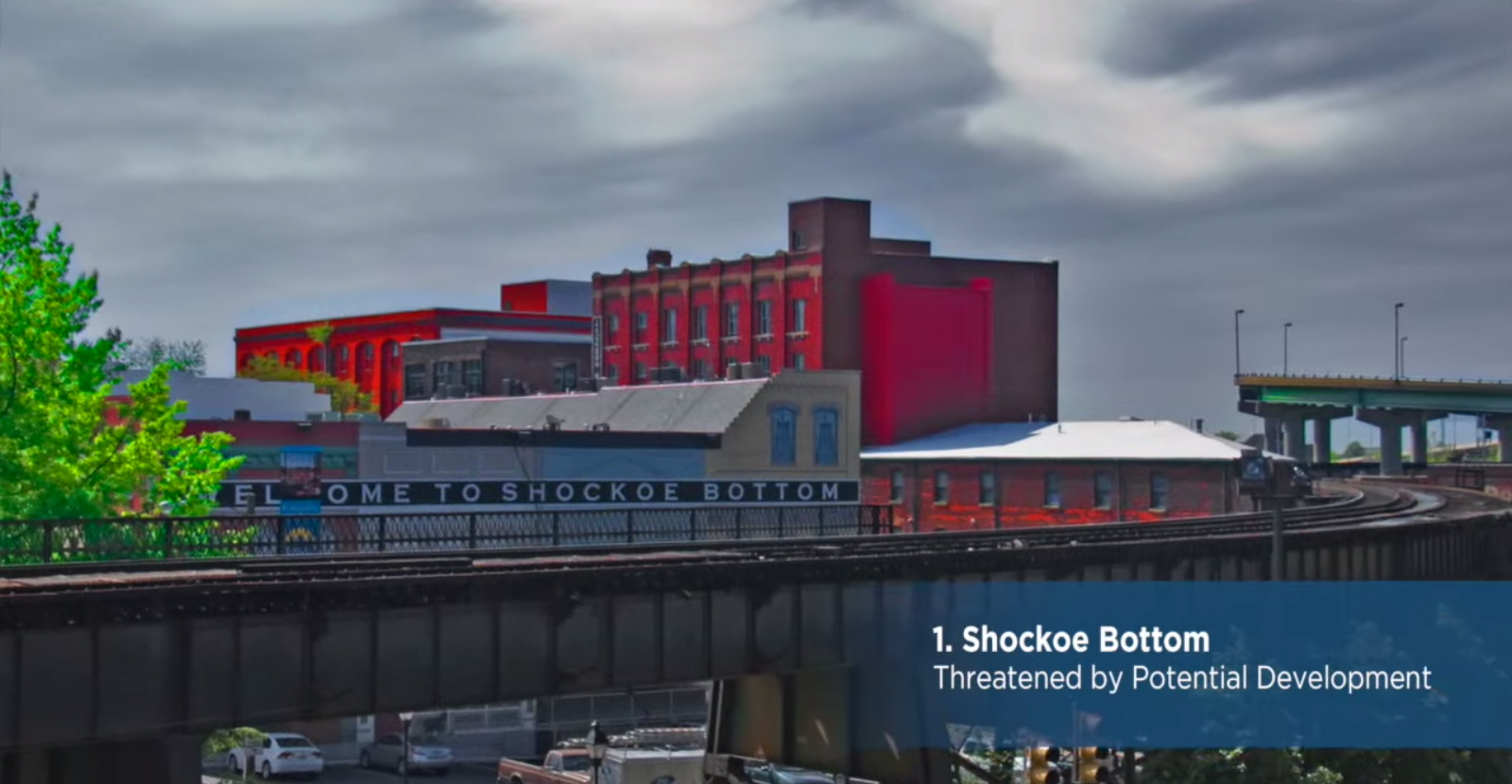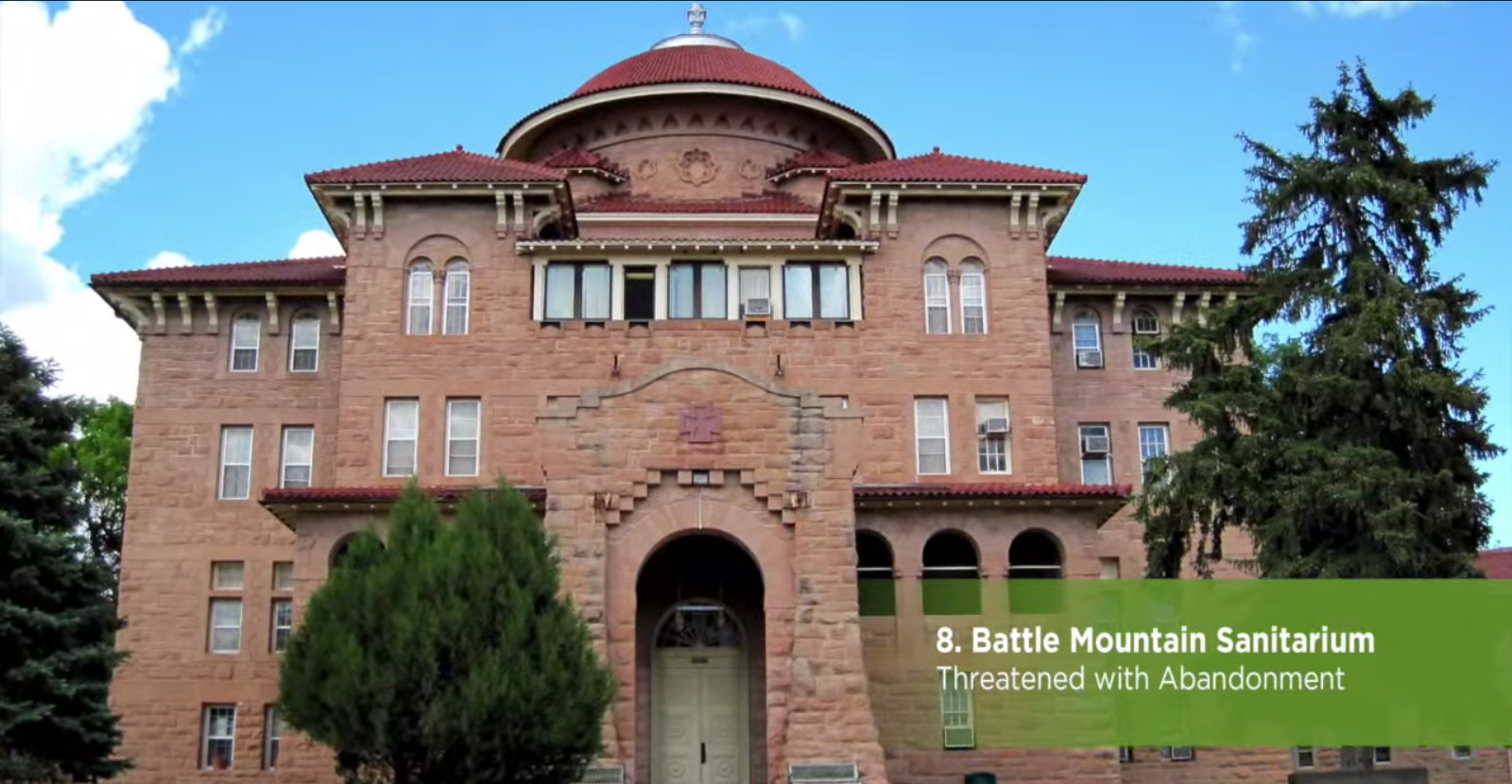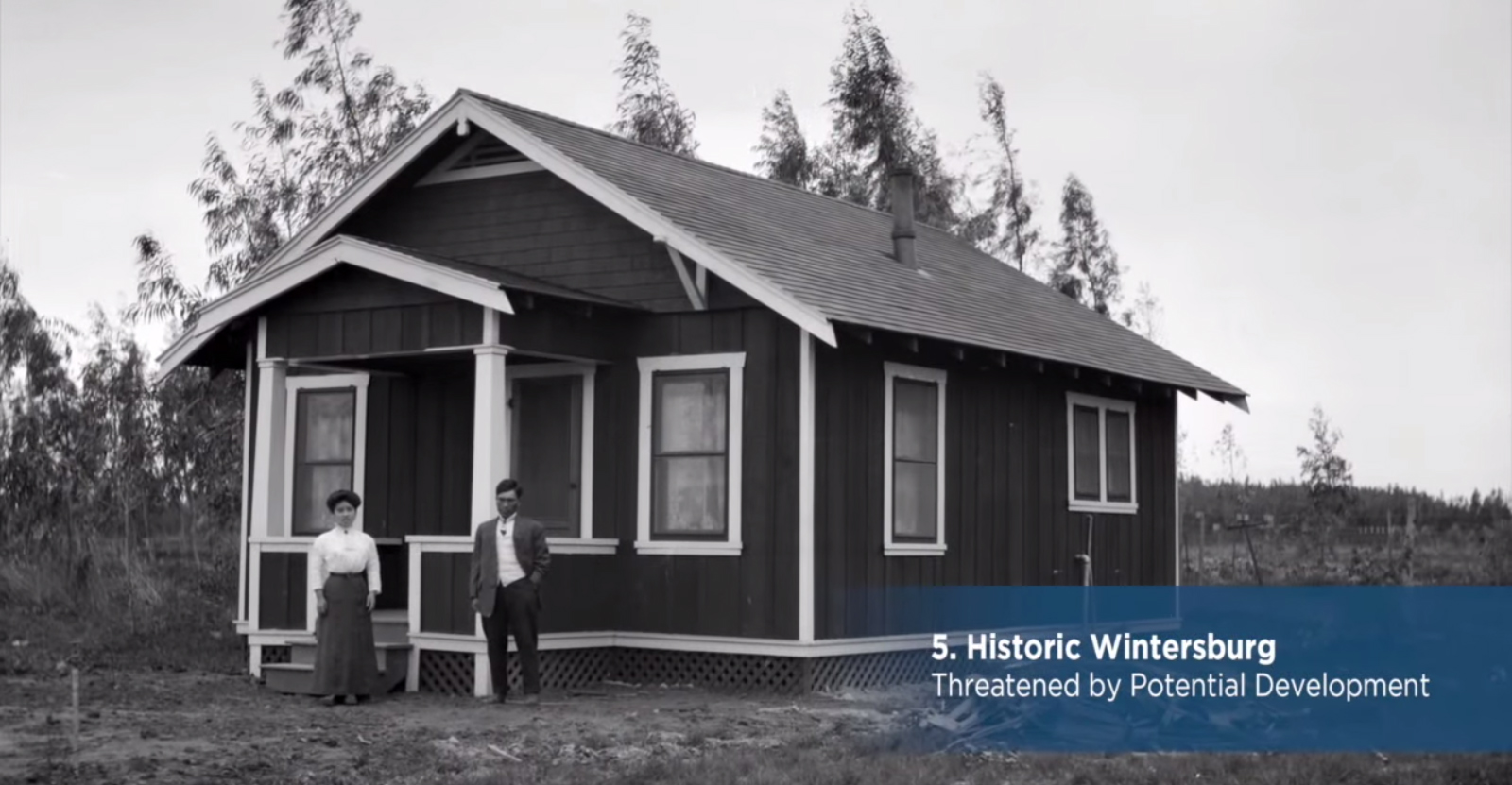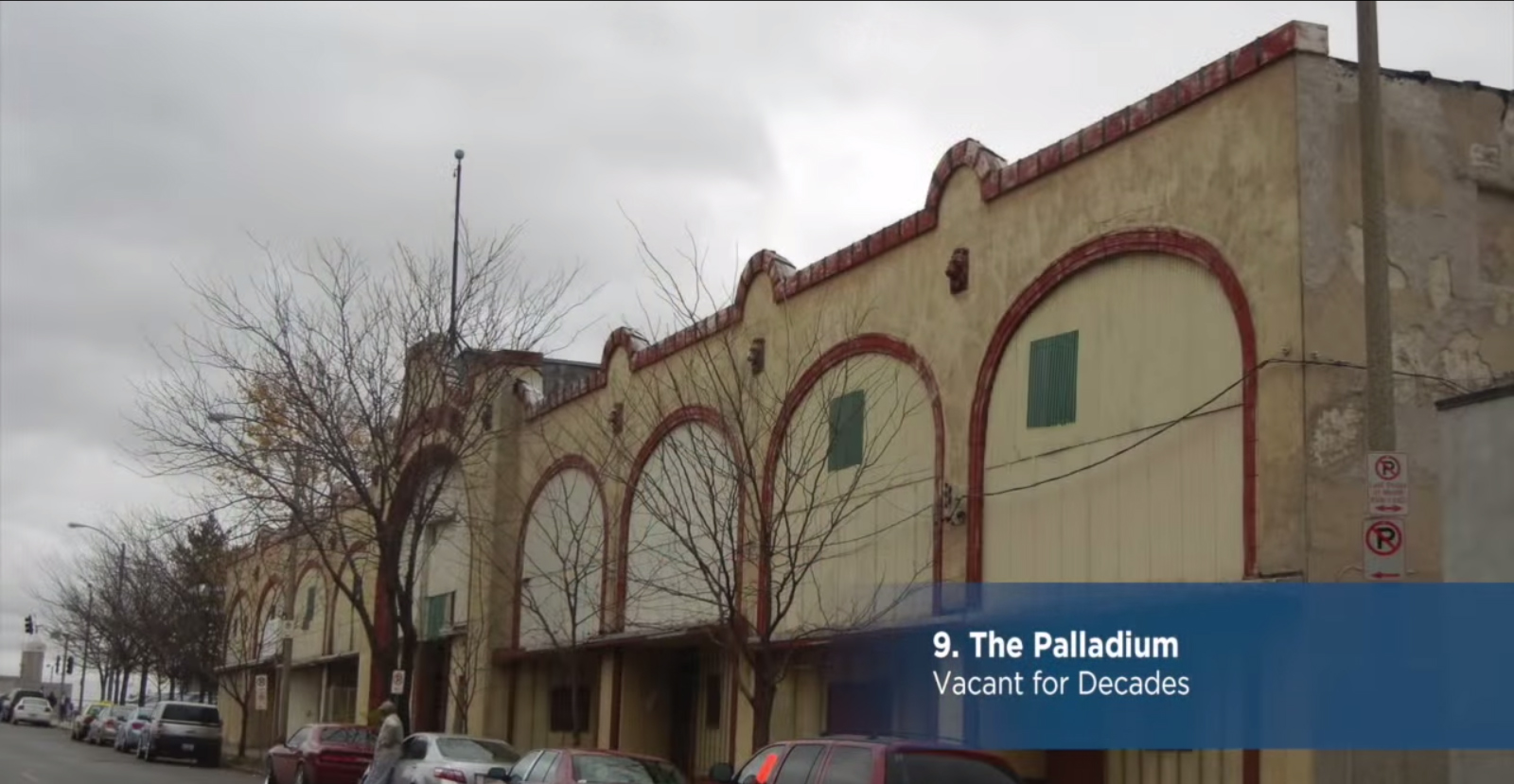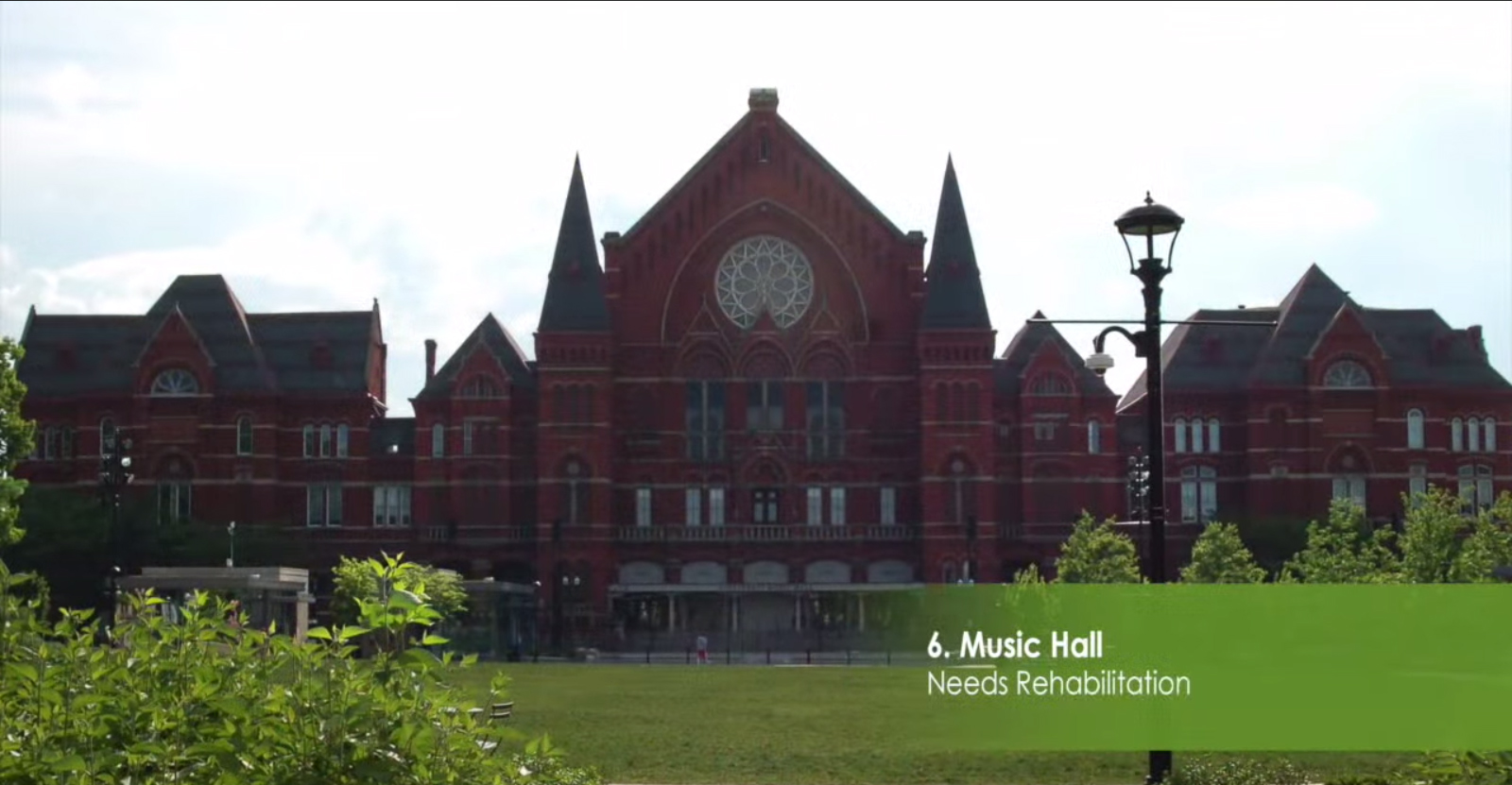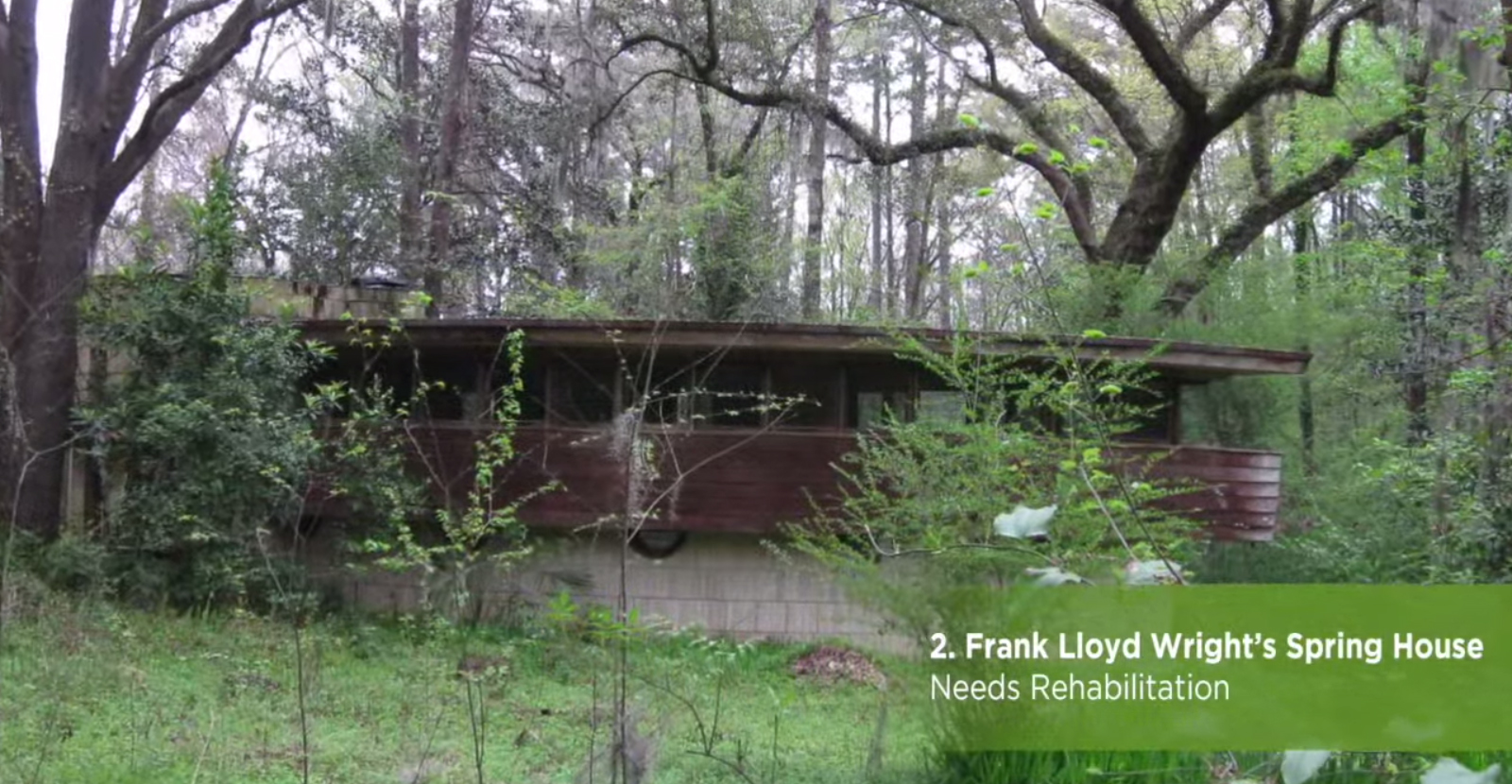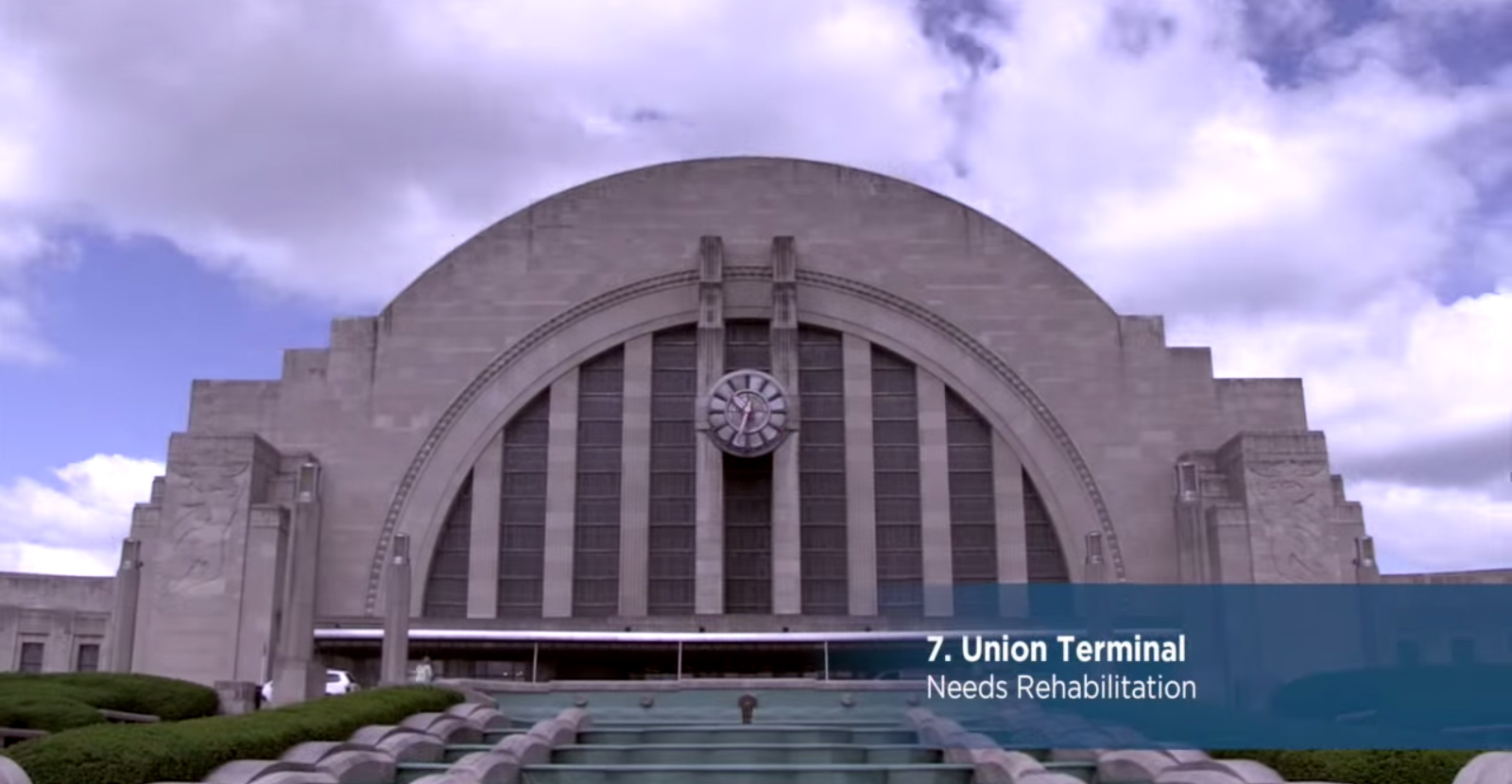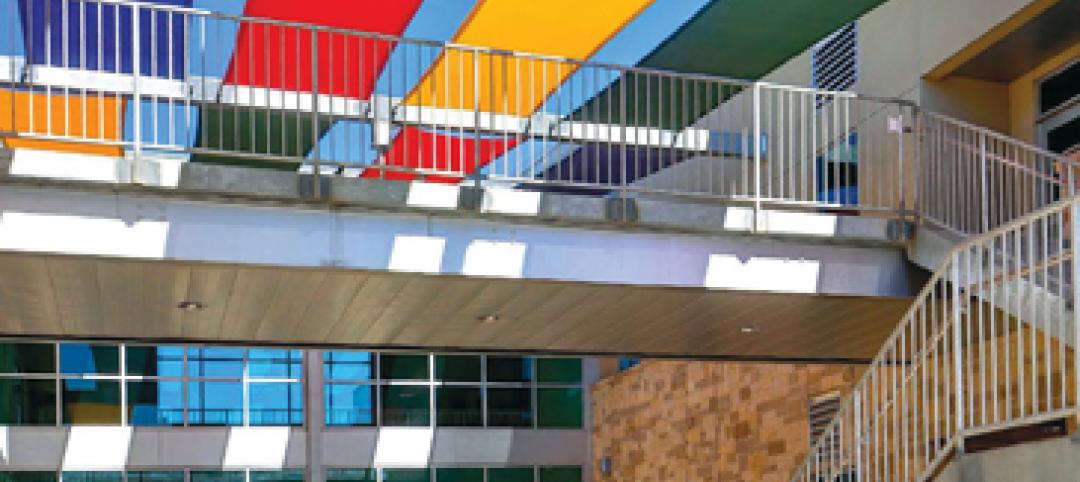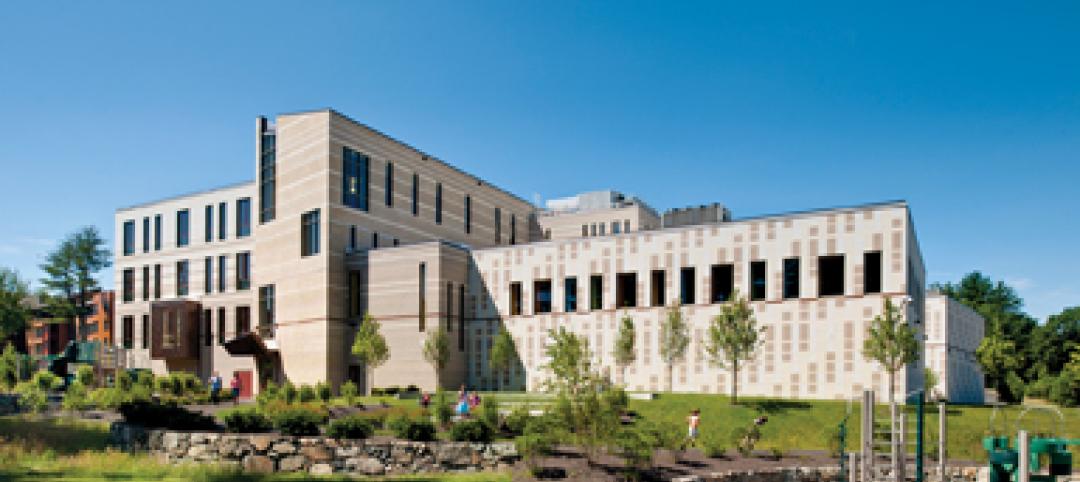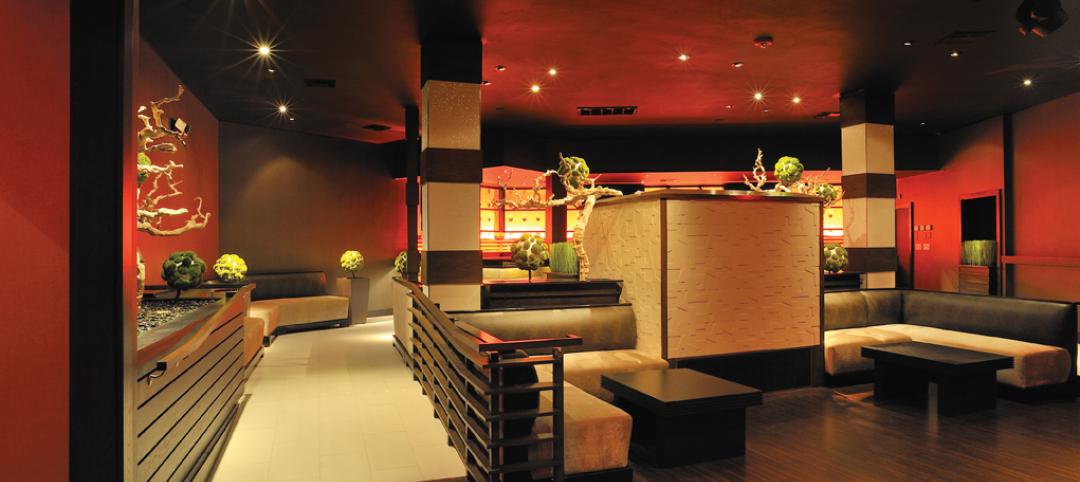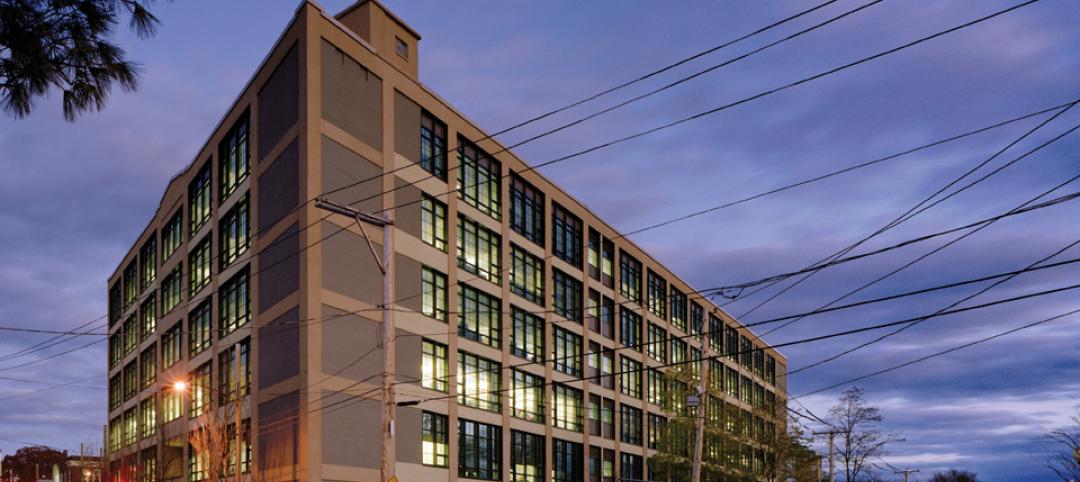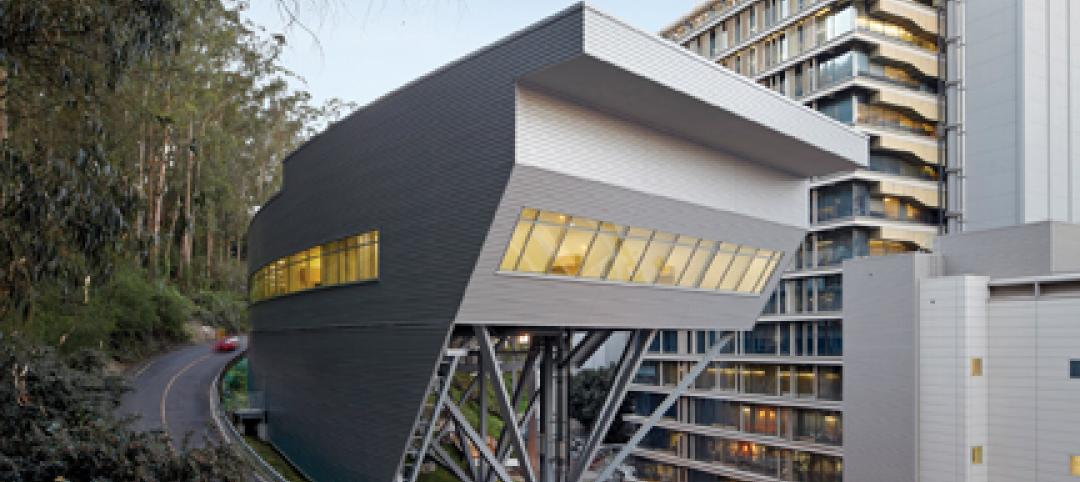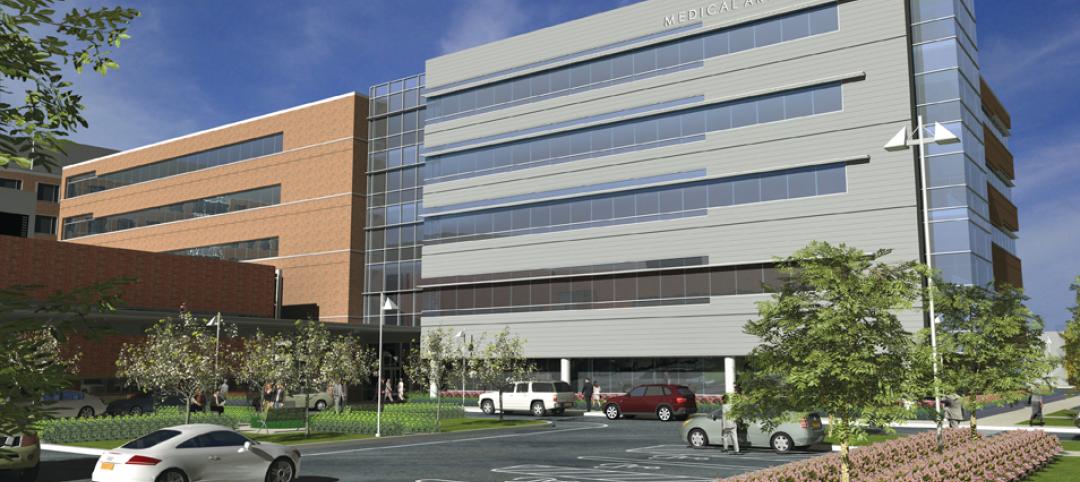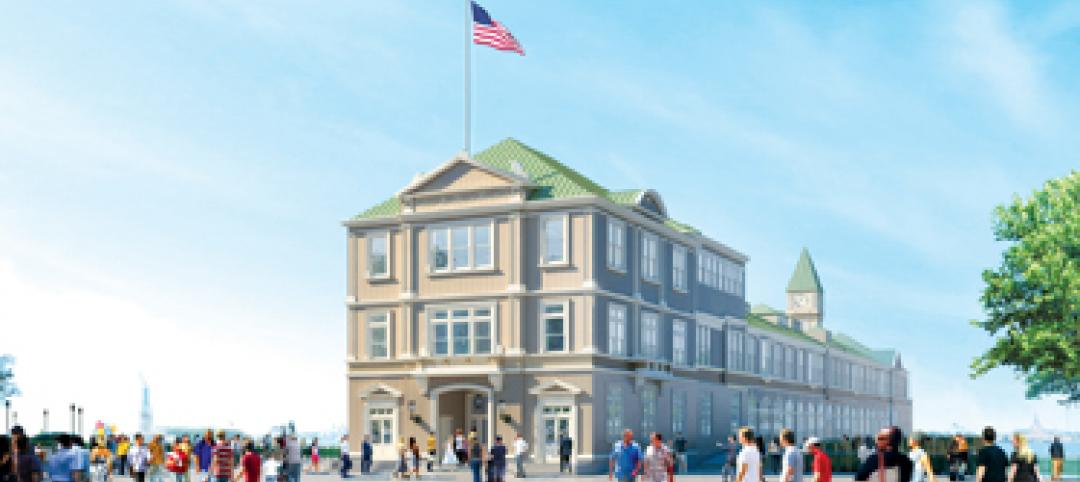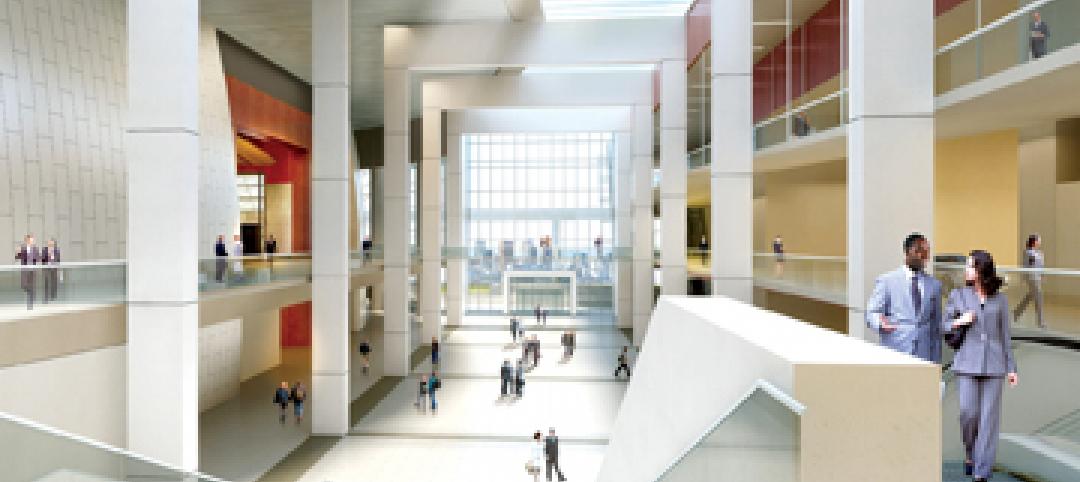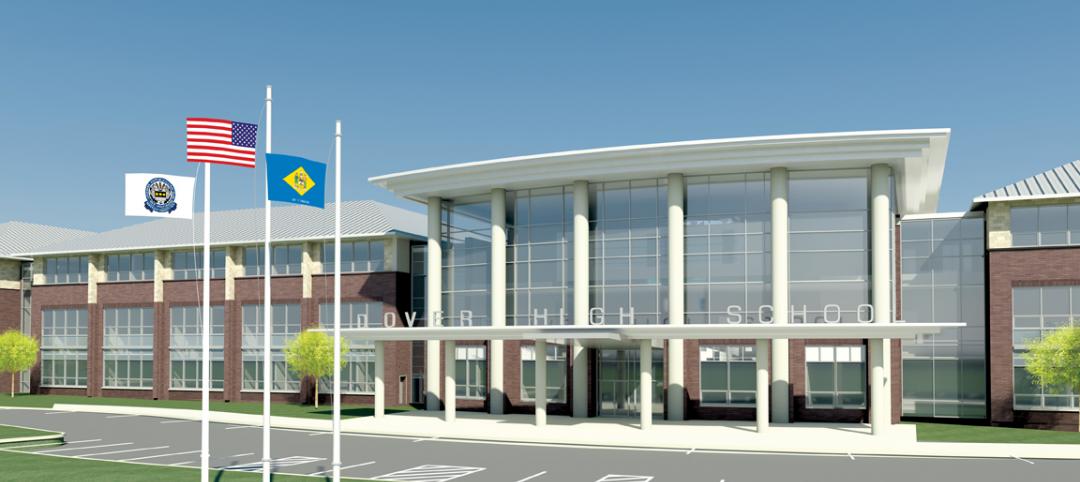See them before you miss them. Or better: take action. For 26 years, the Trust for Historic Preservation has compiled a list of America’s 11 Most Endangered Historic Places as an effort to raise awareness about the threats facing the nation’s greatest treasures of architectural, cultural and natural significance.
This year’s list has a little bit for everyone. From natural landmarks like the Palisades, to grandeur structures like Cincinnati’s Music Hall or simple yet culturally revolutionary architecture like Frank Lloyd Wright’s Spring House, a variety of sites across the United States are threatened by weather damage, natural disaster or pressure for development.
On the brighter side, the National Trust says that thanks to these lists that come out annually, hearts have been touched and communities have been mobilized. Hence, out of the 250 sites listed as endangered, only a handful have been lost.
Here’s a closer look on eight of the sites that made this year’s list in no particular order:
1. Shockoe Bottom, Richmond, Virginia
This site may not look like much, but that’s because the antebellum artifacts are now below the surface. Shockoe Bottom was an important center for the African slave trade between 1830 and 1865, where 350,000 slaves were traded. Among these slaves were Solomon Northup, whose life was chronicled in the Oscars Best Picture winning “12 Years as Slave.” The site is now threatened by plans to build a minor league baseball stadium on it.
The National Trust says: “Shockoe Bottom should be protected as a site of conscience, a place that offers the public a chance to experience, and learn from, this dark chapter in American history. A path forward for Shockoe Bottom should include meaningful public involvement and expert archeological analysis so that the historical remnants of the slave trade now buried there can be seen and properly interpreted.”
2. The Palisades, Englewood Cliffs, New Jersey
Preserving the Palisades is more than preserving a pretty landscape; these cliffs on the Hudson River represent two historically significant stories to the United States. For centuries, the Sanhikan, Hackensack, Raritan and Tappan nations used the cliffs as shelter to protect their people from adverse weather. In the 19th century, the Palisades became the focus of some of the country’s earliest conservation and protection efforts.
A proposal to build an eight story, 143 foot office next to the Palisades would change the scenic view of the Palisades. According to the National Trust, “if construction goes forward, it would represent the first breach of the viewshed in the 100-year history of protecting the Palisades north of the George Washington Bridge.”
3. Battle Mountain Sanitarium, Hot Springs, South Dakota
For over a century Battle Mountain Sanitarium has provided medical care to veterans in the region. It is one of a few properties managed by the U.S. Department of Veterans Affairs (VA) designated as a National Historic Landmark. The facilities are threatened to an uncertain fate as the VA plans to relocate to Rapid City, 60 miles away.
4. Historic Wintersburg, Huntington Beach, California
Underneath the mythical appeal of the Wild West as preserved by Hollywood Western films is a less-known story of California’s diverse settlement since the 19th century. Wintersburg documents three generations of the Japanese-American experience in the United States, and contains six extant pioneer structures and open farmland.
Although the current owners of the property agreed to provide preservationists until mid 2015 to find solutions to save the historic property, demolition of the site remains a possibility.
5. Palladium Building, St. Louis, Missouri
At first glance, this long-neglected and dilapidated building does not look like much. Reality is the Palladium was the largest club of its kind in St. Louis in the 1940s, and pioneers in African American jazz music such as Nat King Cole and Ella Fitzgerald have graced its stage.
6. Music Hall, Cincinnati, Ohio
Built in 1878, the red brick High Victorian Gothic structure features a large auditorium, ornate foyer, offices, carpentry shop, rehearsal rooms, dressing rooms and a ballroom. But despite its grandeur, Music Hall is suffering from deterioration and water damage and is in need of extensive repairs.
7. Frank Lloyd Wright’s Spring House, Tallahassee, Florida
According to the National Trust, the novel hemicycle form “represents a late, and little known, stage in Wright’s long, prolific career.” Constructed in 1954, Spring House is the only built private residence designed by Wright in the state of Florida.
Exposure to hurricanes and winds storms has led to visible damage throughout the interior of the house. Despite the unique design and its association with America’s most famous architect, funds still need to be raised to purchase and restore the house.
8. Union Terminal, Cincinnati, Ohio
The iconic building is one of the country’s last remaining grand-scale Art Deco railroad terminals The massive 180 foot wide and 106 foot tall rotunda is the second largest half dome in the world, and features glass mosaic murals by Winold Reiss depicting the history of Cincinnati and the United States.
The grandeur scale of the structure means restoration costs are hefty, and the station is threatened by deterioration.
To learn more about each site and see the extensive list of endangered landmarks, visit the National Trust’s official page.
Related Stories
| May 18, 2011
Eco-friendly San Antonio school combines history and sustainability
The 113,000-sf Rolling Meadows Elementary School in San Antonio is the Judson Independent School District’s first sustainable facility, with green features such as vented roofs for rainwater collection and regionally sourced materials.
| May 18, 2011
New Reform Jewish Independent school opens outside Boston
The Rashi School, one of only 17 Reform Jewish independent schools in North American and Israel, opened a new $30 million facility on a 166-acre campus shared with the Hebrew SeniorLife community on the Charles River in Dedham, Mass.
| May 18, 2011
Design diversity celebrated at Orange County club
The Orange County, Calif., firm NKDDI designed the 22,000-sf Luna Lounge & Nightclub in Pomona, Calif., to be a high-end multipurpose event space that can transition from restaurant to lounge to nightclub to music venue.
| May 18, 2011
Lab personnel find comfort in former Winchester gun factory
The former Winchester Repeating Arms Factory in New Haven, Conn., is the new home of PepsiCo’s Biology Innovation Research Laboratory.
| May 18, 2011
Addition provides new school for pre-K and special-needs kids outside Chicago
Perkins+Will, Chicago, designed the Early Learning Center, a $9 million, 37,000-sf addition to Barrington Middle School in Barrington, Ill., to create an easily accessible and safe learning environment for pre-kindergarten and special-needs students.
| May 18, 2011
Raphael Viñoly’s serpentine-shaped building snakes up San Francisco hillside
The hillside location for the Ray and Dagmar Dolby Regeneration Medicine building at the University of California, San Francisco, presented a challenge to the Building Team of Raphael Viñoly, SmithGroup, DPR Construction, and Forell/Elsesser Engineers. The 660-foot-long serpentine-shaped building sits on a structural framework 40 to 70 feet off the ground to accommodate the hillside’s steep 60-degree slope.
| May 18, 2011
New center provides home to medical specialties
Construction has begun on the 150,000-sf Medical Arts Pavilion at the University Medical Center in Princeton, N.J.
| May 18, 2011
Improvements add to Detroit convention center’s appeal
Interior and exterior renovations and updates will make the Detroit Cobo Center more appealing to conventioneers. A new 40,000-sf ballroom will take advantage of the center’s riverfront location, with views of the river and downtown.
| May 18, 2011
One of Delaware’s largest high schools seeks LEED for Schools designation
The $82 million, 280,000-sf Dover (Del.) High School will have capacity for 1,800 students and feature a 900-seat theater, a 2,500-seat gymnasium, and a 5,000-seat football stadium.



